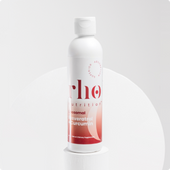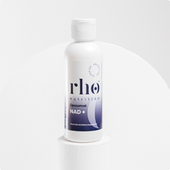If you have come across the term glutathione and thought, “What exactly is that?” you are not alone. Glutathione is a small but significant molecule present in almost every cell of the human body. Unlike trendier antioxidants you might read about on wellness blogs, glutathione has quietly been the subject of scientific study for decades.
This guide is here to explain what glutathione is from a scientific perspective, where it is found, how it is produced, and what influences its levels in the body. Consider this your science-focused overview without marketing hype.
Educational note: This content is for informational purposes only. Always consult a healthcare provider for personal health decisions.
What Is Glutathione?
Glutathione, often shortened to GSH, is a tripeptide molecule made from three amino acids: glutamine, cysteine, and glycine. As an endogenous antioxidant produced naturally inside the body, it has several biochemical roles related to normal cellular processes.
What makes glutathione interesting scientifically is its unique molecular structure and its ability to cycle between reduced (GSH) and oxidized (GSSG) forms. This property helps it maintain balance in the cell's chemical environment.
Where glutathione is found in the body
Glutathione is found in nearly all human cells. It is especially concentrated in the liver, where it participates in key cellular processes. It is also present in the lungs, kidneys, and brain.
How the body produces glutathione
Glutathione is synthesized through two enzyme-driven steps that require energy (ATP):
-
Glutamate and cysteine are combined by the enzyme gamma-glutamylcysteine synthetase.
-
Glycine is added by the enzyme glutathione synthetase to complete the molecule.
This production process depends on having enough amino acids, healthy enzyme function, and adequate cellular energy.
Factors That Affect Glutathione Levels
The body is designed to produce glutathione continuously, but several factors may influence this process.
Age-related changes
As people age, enzyme efficiency can naturally decline, which may influence glutathione synthesis.
Environmental factors
Air quality and exposure to certain chemicals can affect normal cellular processes that involve glutathione.
Lifestyle considerations
Chronic stress and insufficient sleep may impact enzyme activity and other biochemical systems.
Nutritional influences
Diets that do not provide enough amino acids or key nutrients might affect the body’s ability to produce glutathione.
Individual experiences vary. It is always best to consult a healthcare provider for personalized guidance.
Natural Sources and Production Support
Even though the body makes its own glutathione, diet and lifestyle choices can help maintain these natural processes.
Foods containing glutathione precursors
-
Cysteine-rich foods such as poultry, yogurt, and legumes
-
Sulfur-rich vegetables like broccoli, Brussels sprouts, and kale
-
Protein sources that provide glutamine and glycine
Nutrients that support glutathione synthesis
-
Vitamins C and E, which help keep glutathione in its reduced form
-
Selenium, which is a cofactor for glutathione-related enzymes
-
Alpha-lipoic acid, which participates in cellular antioxidant cycles
Note: Food choices may support natural cellular functions, but always check with a nutrition professional or healthcare provider.
Lifestyle factors: exercise and sleep
Moderate physical activity and quality sleep are both associated with maintaining healthy cellular functions.
Potential Benefits of Taking Glutathione (Objectively Speaking)
Scientific research is ongoing regarding glutathione as a dietary supplement. Regulations prevent us from making therapeutic claims.
What can be said:
-
Supplements often use reduced glutathione, which is the active form in the body.
-
Some research suggests oral or liposomal forms may influence blood glutathione levels, though human studies show mixed results.
Why the Interest in Glutathione?
Scientists continue to study glutathione because it is present in almost all human cells, plays a role in the redox cycle, and helps keep the cellular environment balanced.
Rather than focusing on claimed health outcomes, the scientific interest is mainly in glutathione’s biochemical structure and cellular roles.
Key Takeaways
-
Glutathione is a tripeptide molecule found in nearly every human cell.
-
The body naturally produces it, relying on amino acids, enzymes, and energy.
-
Research explores its potential as a supplement, but therapeutic claims are not supported by regulatory standards.
-
Diet, lifestyle, and consultation with healthcare professionals remain key to supporting the body’s natural processes.
*These statements have not been evaluated by the Food and Drug Administration. This product is not intended to diagnose, treat, cure, or prevent any disease.













Leave a comment